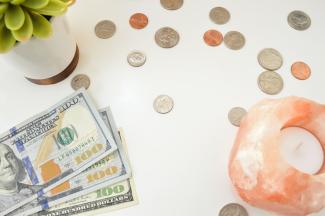
Plan for Unforeseen Events
This past January, a friend came to me seeking advice. He had just received an inheritance and wanted to know how he should invest it. He rattled off a list of strategies that he was excited about and started to explain why he thinks now is a good time to invest. My first question to him was simple. It’s the same question I would ask almost anyone in his situation before talking investments. I asked him if he has an emergency fund. There was a moment of silence, and then a question: “What’s an emergency fund?”
An emergency fund is an account that’s set aside in cash or cash equivalents to cover those immediate expenses that occur due to unforeseen circumstances. Being laid off, incurring a large medical expense and being hit with a property damage insurance deductible (think Hurricane Matthew) are examples of expenses that can come up out of the blue and in many cases need to be paid immediately. Many times, in these situations people are forced into a panic and scramble to find options to fund the immediate need for cash. This usually results in having to make some tough decisions involving selling off current assets for potentially less than desirable values and, in more extreme situations, maxing out credit cards or taking high-interest loans.
An emergency fund can provide much needed relief and serve as peace of mind during times when the future seems uncertain. Imagine being laid off knowing there’s a very high chance that you have enough money to pay your bills until you find another job. It eliminates a large portion of the stress and pressure in a bad situation and will allow you to focus on putting your best foot forward finding that new job. Also think about a situation where a member of your family has a trip to the emergency room. Knowing that you have a fund to cover the expense will take the financial stress out of your mind so you can focus on your loved ones. These few examples illustrate how important an emergency fund can be both financially and emotionally.
The amount that is kept in the fund is different for everybody. Depending on your occupation and current financial situation, you may find it appropriate to keep anywhere from three to 12 months of current income as your emergency fund. This amount is often determined and included in your overall plan when you work with a financial planner. It’s usually a good idea to adjust your emergency fund after new life events occur. Having a baby or buying a new, more expensive house may require you to re-think how much you need to keep in the fund.
Having an emergency fund is important for everyone but it becomes especially important when you have a family or business to support. That’s why funding or replenishing should be a high priority when allocating current income and savings. This may require a few sacrifices, but it’s a temporary inconvenience. Eventually you’ll reach the desired amount in the fund and you’ll no longer have to contribute for the time being.
I spoke to my friend last week and found out that he was furloughed by his company in late March. He was glad that he took the time to have that conversation with me back in January. Having the discipline to properly maintain an emergency fund is sometimes not easy but will be well worth it when those unexpected events and expenses arise.
We can’t control the future, but we can control how we prepare for it.

